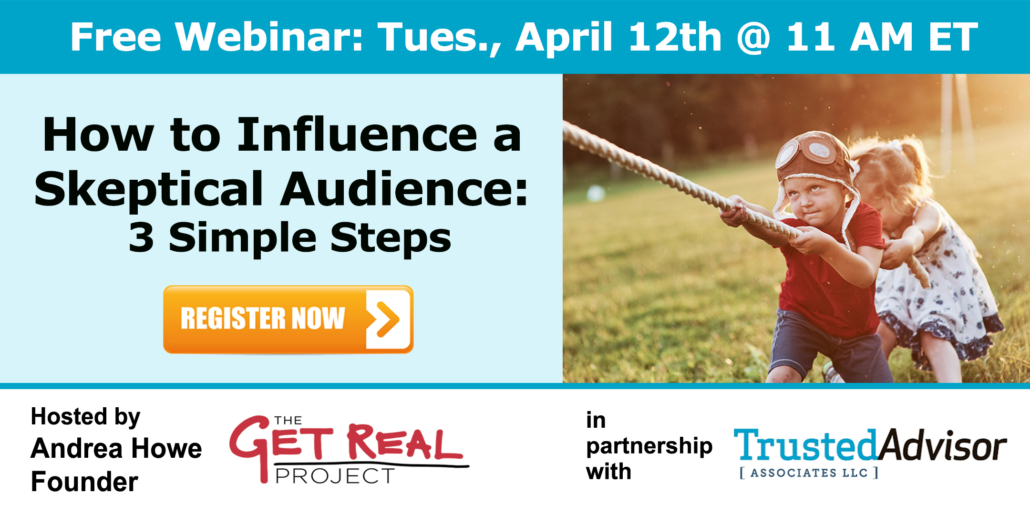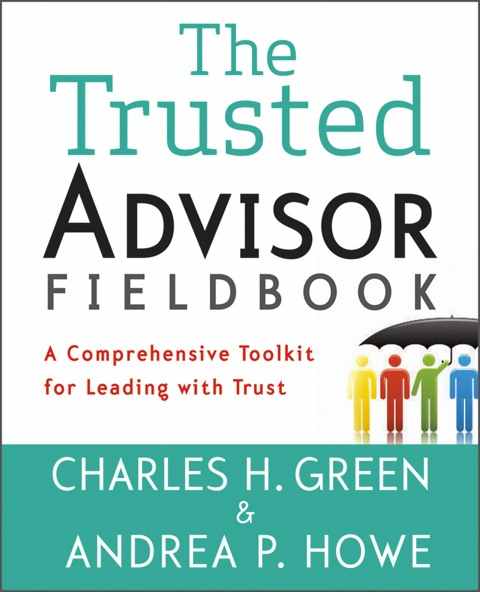The term “trusted advisor” has undergone some changes since I first co-wrote the book by that title 11 years ago. Three changes, to be precise:
- It’s amazing how many more people claim to be one;
- It’s becoming clear that not every industry needs one;
- In the industries and functions that matter, the concept is gaining headway.
It’s the third point that’s most important, and most promising.
1. Grade Inflation, Title Inflation, Trusted Advisor Inflation
The United States has taken to heart Garrison Keillor’s fictional Lake Wobegon, where “all the children are above average.” That’s got to be the only sensible conclusion from the data, which show in-your-face grade inflation at the college and university level.
A couple of years ago, the Economist proclaimed that “Inflation in Job Titles is Approaching Weimar Levels.” (In case you’re not down with economist jokes, read here, and I won’t tell anyone).
So I guess it’s no wonder that we have “Trusted Advisor inflation.” I’ve sat in on several corporate training programs lately where generally mid-level attendees were asked to indicate whether they were operating at the “trusted advisor” level with their clients.
About 70% said they were. That may not be Weimar territory, but it’s Lake Wobegon for sure. I will tell you from experience: that was not the case 12 years ago, even in the same industries.
My conclusion? Not much, actually. We live in a post-Warholian age of hyperbole. “Friend” doesn’t mean what it used to, nor do “authenticity,” “talent,” or “good audio,” for that matter. But it’s OK: it means what it means, namely how people actually use the term. Definitions are living things, captured only momentarily in dictionaries.
2. Not Every Industry Needs a Trusted Advisor
I had dinner the other day with an old classmate, a very senior advisor to a Very Big private equity fund, who keeps tabs on a dozen global retail clients. “So Charlie, tell me what’s up with Trusted Advisor Associates these days,” he said.
It was clear from his tone that he was skeptical about the relevance of the concept to his businesses – mainly B2C consumer-level chains in things like pet foods, electronics and sundries.
I could tell that because he visibly relaxed when I said, “Gary, I don’t need a trusted advisor relationship with the counter-guy at Dunkin’ Donuts. I love that he knows my order when he sees me come in – but that’s quite enough. It would ruin everything if we ever got past, ‘hi guy, the usual?’ And ditto for Starbucks.”
It’s true. There are whole bunches of roles and industries that don’t need to have trusted advisor relationships. Most B2C retail doesn’t need it. Traders don’t need it. Marketers don’t generally need it. Most non-client-facing roles don’t need it. Manufacturing roles don’t generally need it.
That’s not to say all those roles can’t benefit from the basics of curiosity, good values and manners. But, as per point 1 – let’s not inflate that into Trusted Advisor Status.
3. Those That Do Need It – Are Starting To See It
The term “trusted advisor” originated in high-end professional services and wealth management relationships and it’s still valid and well-understood there.
The biggest shifts I’ve seen since the original The Trusted Advisor in 2001 have come in four areas: sales, internal staff functions, leadership and the financial industry. (One industry that’s still a work-in-progress – pharma).
Sales. In the last decade or so, the field of sales has undergone a number of changes. Some – like Salesforce.com, Sales 2.0, Google clicks – have often made the function less personal, and arguably less trustworthy.
But others – like inbound marketing, complex sales, and the amazing transparency machine called the Internet – have made selling more personal, and often more trustworthy.
I like to think my own book, Trust-based Selling, published by McGraw-Hill in 2005, played a little role in that too.
Internal Staff Functions. The Big 5 staff functions – HR, IT, Legal, Marketing, and Finance – have made large jumps in many companies to realizing that their internal client relationships have exactly the same needs. How to get invited in before problems arise; how to get your advice taken; how to add value – these are all critical functions for an internal staff function. More about those functions here.
Leadership. Tons of things have changed with leadership. Let’s sum it up by saying leadership has become more horizontal, less vertical. That moves influence, persuasion and trust way up the required skills list for leaders. Rob Galford wrote about that in 2003 in The Trusted Leader; Andrea Howe and I wrote about it in last year’s The Trusted Advisor Fieldbook: A Comprehensive Toolkit for Leading with Trust.
Financial Industry. Something is happening in the financial planning and wealth management industries. The line between brokers and fiduciaries is finally getting defined, and the balance of power seems to be shifting toward trusted advisor, client-focused relationships. (Some of you know this issue as fiduciary vs. suitability).
The issue is delightfully defined in a YouTube video about the difference between your butcher and your dietitian. For more on this issue, read Michael Kitces, who writes well and often about it.
Just around the industry corner is Wall Street, investment banking, and the flap about Michael Smith’s Goldman resignation. Investment banking used to be a pure trusted advisor kind of business. People like Epicurean Dealmaker still speak eloquently about that part of the business.
But investment banks have more complex business models these days, and it’s far from clear (to me anyway) that all of those businesses should be built on the long-term, client-centric models required by true trusted advisors.
Conclusions:
1. Just because you think you’re a trusted advisor doesn’t mean you are one – Lake Wobegon is mythical, after all.
2. But neither does it necessarily mean you should be one. We don’t need trusted advisors on every street corner.
Sometimes a cigar is just a cigar, and we should leave it at that.


 Last week I had the pleasure of speaking in Minneapolis at the annual meeting of the
Last week I had the pleasure of speaking in Minneapolis at the annual meeting of the